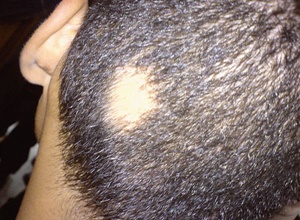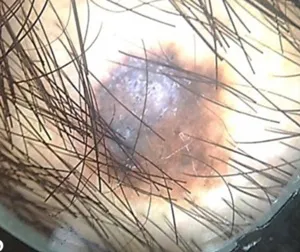
Tortoise And Hair To Raise Funds For Alopecia Areata
 Tortoise And Hair To Raise Funds For Alopecia Areata - Image by Joel M Mathey - Unsplash
Tortoise And Hair To Raise Funds For Alopecia Areata - Image by Joel M Mathey - Unsplash Two Texas (Katy) families with children suffering from an autoimmune disease called Alopecia Areata (AA), which causes severe hair loss, will co-chair the "Tortoise and Hair" 5K and 1-mile run/walk in downtown Houston on Saturday, June 27, 2009.
The very worthwhile event will be held in conjunction with the 24th annual Alopecia Areata Foundation international conference at the Hyatt Regency Hotel.
With AA, there is no way to predict if and when hair will fall out or regrow.
What Is Alopecia Areata
Alopecia areata, also known as spot baldness, is a condition in which hair is lost from some or all areas of the body. Often, it results in a few bald spots on the scalp about the size of a coin.
Psychological stress and illness are possible factors in bringing on alopecia areata in individuals at risk, but in most cases, there is no obvious trigger.
People are generally otherwise healthy. In a few cases, all the hair on the scalp is lost (alopecia totalis), or all body hair is lost (alopecia universalis). Hair loss can be permanent or temporary. It is distinctive from pattern hair loss, which is common among males.
Alopecia Areata Is An Autoimmune Hair Loss Disease
 Abbassyma at English Wikipedia - Transferred from en.wikipedia to Commons.
Abbassyma at English Wikipedia - Transferred from en.wikipedia to Commons.Alopecia areata is believed to be an autoimmune disease resulting from a breach in the immune privilege of the hair follicles.
Risk factors include a family history of the condition. Among identical twins, if one is affected, the other has about a 50% chance of also being affected. The underlying mechanism involves failure by the body to recognize its own cells, with subsequent immune-mediated destruction of the hair follicle.
No cure for the condition is known. Efforts may be used to try to speed hair regrowth, such as cortisone injections. In some cases, the hair regrows, and the condition does not reoccur.
In others, hair loss and regrowth occur over years. Among those in whom all body hair is lost, fewer than 10% recover. Sunscreen, head coverings to protect from cold and sun, and glasses, if the eyeglasses are missing, are recommended.
About 0.15% of people are affected at any one time, and 2% of people are affected at some point in time. Onset is usually in childhood. Females are affected at higher rates than males.
 Official Photo of Rep. Ayanna Pressley (D-Massachusetts) during the 117th Congress
Official Photo of Rep. Ayanna Pressley (D-Massachusetts) during the 117th CongressThe National Alopecia Areata
Living with the disease can be challenging at times, but both families have coped with the disease through support from friends, the community, their church, the National Alopecia Areata Foundation (NFAA), and Texas Children's Hospital.
Although living with AA may be difficult, it is not contagious, and there are no harmful effects other than hair loss.
The body thinks that it is allergic to hair follicles, and therefore, it rejects hair growth.
Another physical sign of AA can be pitted fingernails. In the United States, 1.7 percent of the population has Alopecia Areata.
Sponsorships for the Tortoise & Hair event range from $100 to $1,000. However, donations of all sizes are welcome.
Donations can be made to the National Alopecia Areata Foundation or at the event's website, www.houstonnaaf5k.org.
More Information
Please follow me on Twitter at http://Twitter.com/HairBoutique. I look forward to meeting new Tweeple from all walks of life and learning from their Tweets.Social Media Network Information
Please follow us on Twitter at: https://Twitter.com/HairBoutique. I look forward to meeting new people from all walks of Twitter and learning from their Tweets.















